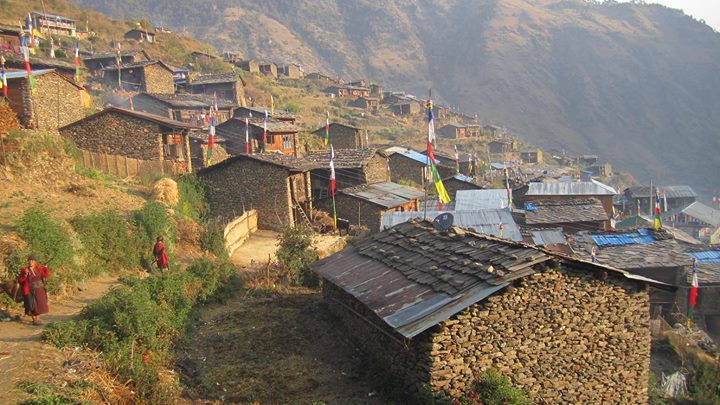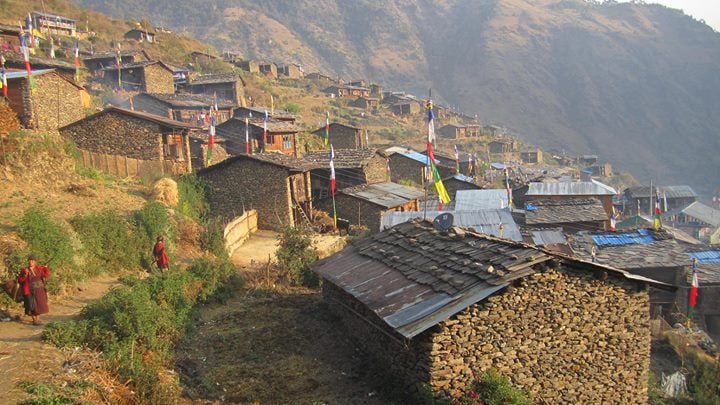
Finding Family in the Most Remote of Places
I was with a group of international school teachers on a holiday hike in the middle of the Himalayan Mountain Range in 2014. We weren't skilled hikers but the heights propelled us to see those magnificent peaks from a vantage point like no other. At the highest point of the Langtang Region, we rested our tired bodies and were taken care of by a wonderful family at their 'tea house'. This was a very special week for them but it wasn't because we tourists were in town, it was because:
Their children returned home for a school holiday!
The eldest daughter was a preteen, they had another two young daughters just starting their first year away from home; then another little boy, and a baby girl, both still too young to be away at a boarding school.

I will never forget their smiles from simply being together. The little brother's energy was bouncing off the walls as he showed off and played with his elder sisters. Despite all the hard work the parents were doing to host us, especially at mealtimes, the children were inseparable and doting on their loving parents.
Having lived in Kathmandu for 4 years, there was a prevalence of orphanages. I had been part of many orphan care organizations; some that ran children homes and some that helped with the effects of trauma from the earthquake in 2015. I was stuck in a weird sort of 'normal', where best friends of mine were working with orphaned and street children, striving to help in the best ways possible.
But it was in finding this family in the most remote of places, when my eyes were opened to the genuine love of a family. Wrestling inside me were questions of 'why children in orphanages returned home on school holidays,' and 'how well were children still connected to their families if they were living away from them?' I found the complexities having to do with education being necessary, and that their families were stuck in poverty. Searching for answers on how to help vulnerable children and families, using best practices in the work to help families holistically, led me to continue on as the Communications Coordinator for 1MILLIONHOME today.
Friends of mine wrestle alongside me as we interact with orphaned children.
From that hike over 7 years ago, I gave myself permission to grieve my losses, wrestle through misunderstandings, and I made myself an oath to never take a photo of myself with a vulnerable child again.
Who is that really for anyway?
These international teachers and I walked for days before arriving to this tea house where this family's home became forever etched into my heart. It is common to walk for days for getting supplies carried by yaks, or for children to go to school. I had plenty of time to think of all the positive ways that this experience of seeing family lived out was right and good, despite the poverty. Love was there and it was immeasurable.
The impossible decisions these families make to provide for their children's education is endlessly painful.
Imagine tiny little girls at ages 5, 6, or 11 years-old, walking for days to be dropped off at school by their father; to be separated from their parents, until the next long-away school holiday.
I can only imagine the hardships brought onto families these past few years due to the lack of tourism in Nepal because of COVID. Though, I have so much hope in seeing hardworking parents who have sacrificed for their children's futures.
If anyone believes that it is better for a child to live at an orphanage, when they still have relatives that love them, ask that family:
What would it take to support your whole family in the midst of the tough decisions ahead?
This beautiful family seemed stable. Many loving families, even in the most remote of places and under some of the hardest geographical conditions, can be connected and provide a place of belonging. I can't imagine these parents under any circumstances, asking their children to omit telling other people about them. Though, that seems to be the conflict for children in some orphanages: how much can they share about having families who love them and whom they feel a sense of belonging to? These children belong with their family even if their parent's choice for their education, means they must be separated at boarding schools as a result. These children have a loving family to return to.
We asked to take a photo to remember them by and I am so thankful to remind myself of this encounter many years later, now as a mother myself.
-png.png)
Since I never asked permission to share their photo with you all, I have hidden their identities to respect their identities. If I ever get the chance to hike days into the Langtang Range in the Himalayan Region again, I hope to bring a framed photo to give them.
I know the distance it can take for a family to stick together. Let's hope we can work together to provide holistically for a family and not just one child in need.
......................
